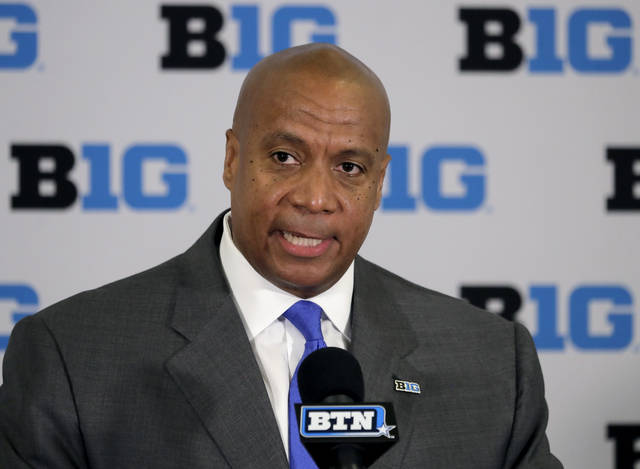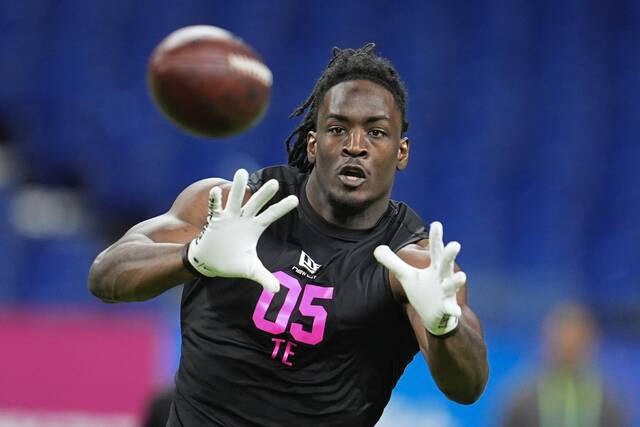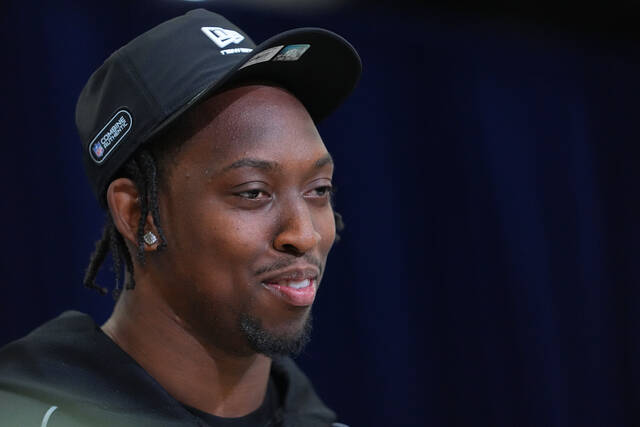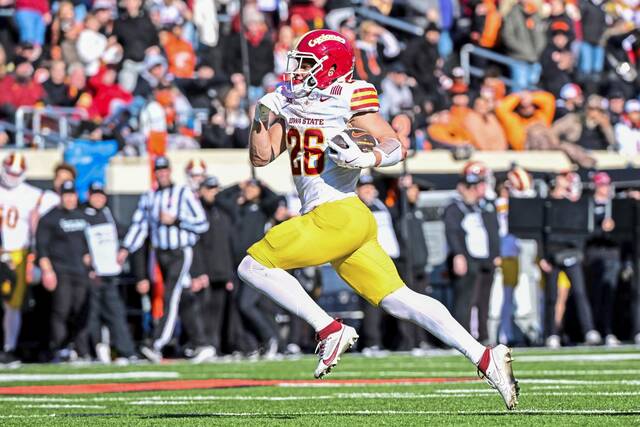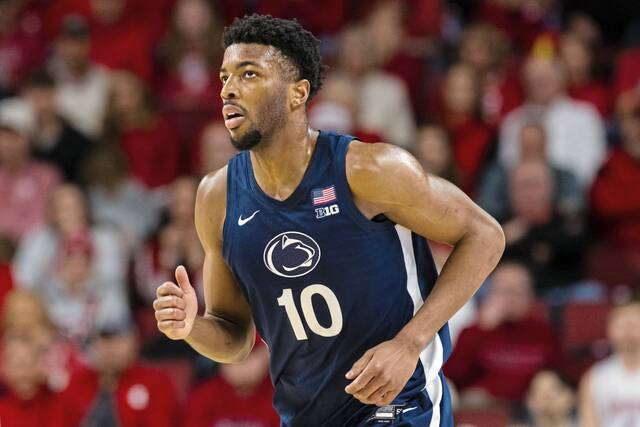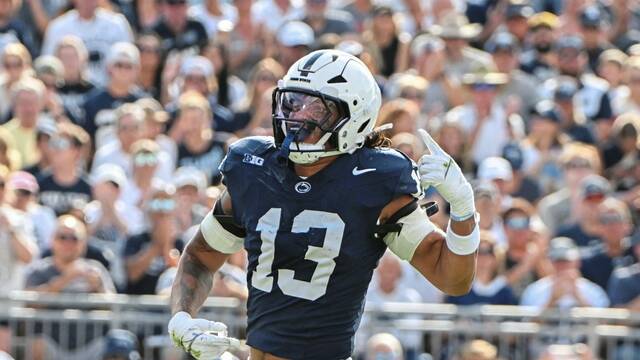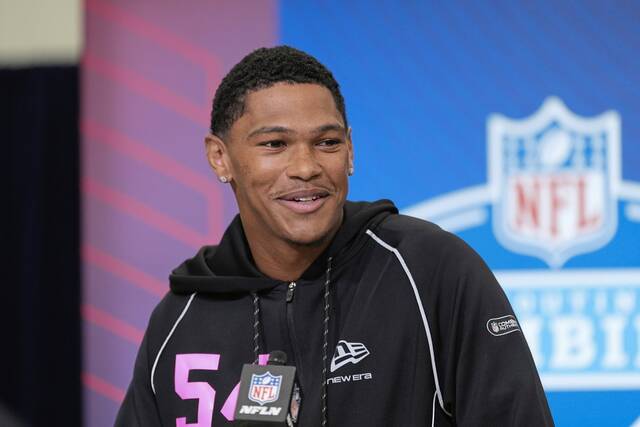The Big Ten is going to give fall football a shot after all.
Less than five weeks after pushing football and other fall sports to spring in the name of player safety during the covid-19 pandemic, the conference changed course Wednesday and said it plans to begin its season the weekend of Oct. 23-24. Each team will have an eight-game schedule.
“Let’s goooooo!!!” Ohio State quarterback Justin Fields tweeted.
The Big Ten said its Council of Presidents and Chancellors voted unanimously Tuesday to restart sports. The emergence of daily rapid-response covid-19 testing, not available when university presidents and chancellors decided Aug. 11 to pull the plug on the season, helped trigger a re-vote. The COP/C adopted additional medical protocols, including daily antigen testing and enhanced cardiac screening. Testing is set to begin by Sept. 30, conference officials said.
So, how is this reconfigured Big Ten schedule going to work?
All 14 teams are currently on track to play football, and the Big Ten will schedule eight regular-season games in eight weeks through Dec. 12, plus offer the opportunity for a ninth Dec. 19 when the conference championship game will be played. That’s an important date because the College Football Playoff selections are scheduled Dec. 20.
If all goes well and the season remains on schedule, the best Big Ten teams will be considered for the playoff. If not, there is not much room to adapt.
Other conferences built in off weeks to contend with potential disruptions. The Big Ten did that back in early August, but now must go forward with a condensed schedule.
A word of caution: Across major college football since Aug. 26, 13 games have been postponed because of teams dealing with covid-19 outbreaks. Some have not been rescheduled.
The bad news is Beaver Stadium in State College and other Big Ten stadiums won’t be packed with fans. Not even close. Tickets will not be sold to the general public, but some attendance is expected.
“That’s still an 80,000-seat stadium that we don’t have,” said Wisconsin athletic director Barry Alvarez, who had estimated the loss of football would cost the school $100 million.
The Big Ten will require student-athletes, coaches, trainers and other individuals that are on the field for all practices and games to undergo daily antigen testing. Test results must be completed and recorded prior to each practice or game. Student-athletes who test positive for the coronavirus through point of contact (POC) daily testing would require a polymerase chain reaction (PCR) test to confirm the result of the POC test.
While the Big Ten is employing an abundance of caution, the earliest a student-athlete can return to game competition is 21 days following a covid-19 positive diagnosis, cardiac evaluation and clearance from a cardiologist.
“We’re in a better place, regardless of how we got here or how painful it was during the time we waited to get this moment,” Ohio State athletic director Gene Smith said. “That’s all behind us. What’s beautiful is that we have a process and protocols in place that’s based on science and based on lessons learned since Aug. 11.”
The decision to play came after pressure from coaches, players, parents and even President Donald Trump. The conference is home to a number of battleground states in the November election, and Trump swifly applauded the move in a tweet while his campaign suggested the return of college football was “in no small part” due to the president’s leadership.
Northwestern President Morton Schapiro, chairman of the presidents’ council, said the turning point for him on giving the green light to football — even though many students have not been allowed back on his school’s Evanston, Illinois, campus — didn’t come until this past weekend.
“For me, it wasn’t about political pressure, money or lawsuits,” Schapiro said. “It was about the unanimous opinion of our experts. It evolved over the course of weeks.”
Conference officials added that eventually all Big Ten sports will require testing protocols before they can resume competition. Information on sports other than football, including men’s and women’s basketball, men’s ice hockey, men’s and women’s swimming and diving, and wrestling, will be announced shortly.
The news was welcomed by Penn State athletic director Sandy Barbour and coach James Franklin. Both issued statements Wednesday morning.
“The opportunity to safely return to athletic competition is a positive for not only our athletics department, but our campus community and Penn State nation,” Barbour said. “Most importantly, I am thrilled for our student-athletes, coaches and staff, as I know how much continued hard work they have put in during this summer and fall with their eyes on returning to competition.”
Added Franklin: “These last several months have been riddled with uncertainty for our student-athletes, but they have handled it with class and dignity. Our guys have remained relentless in following our covid-19 protocols and in their preparations to be ready to play football.”
Meanwhile, the Pac-12 recently announced a partnership with a diagnostic lab that will give the conference’s schools the capacity to test athletes daily.
Statement from Larry Scott in the wake of the Big Ten news: pic.twitter.com/TdFMDqLG3P
— Kyle Bonagura (@BonaguraESPN) September 16, 2020
The Associated Press contributed to this report.


